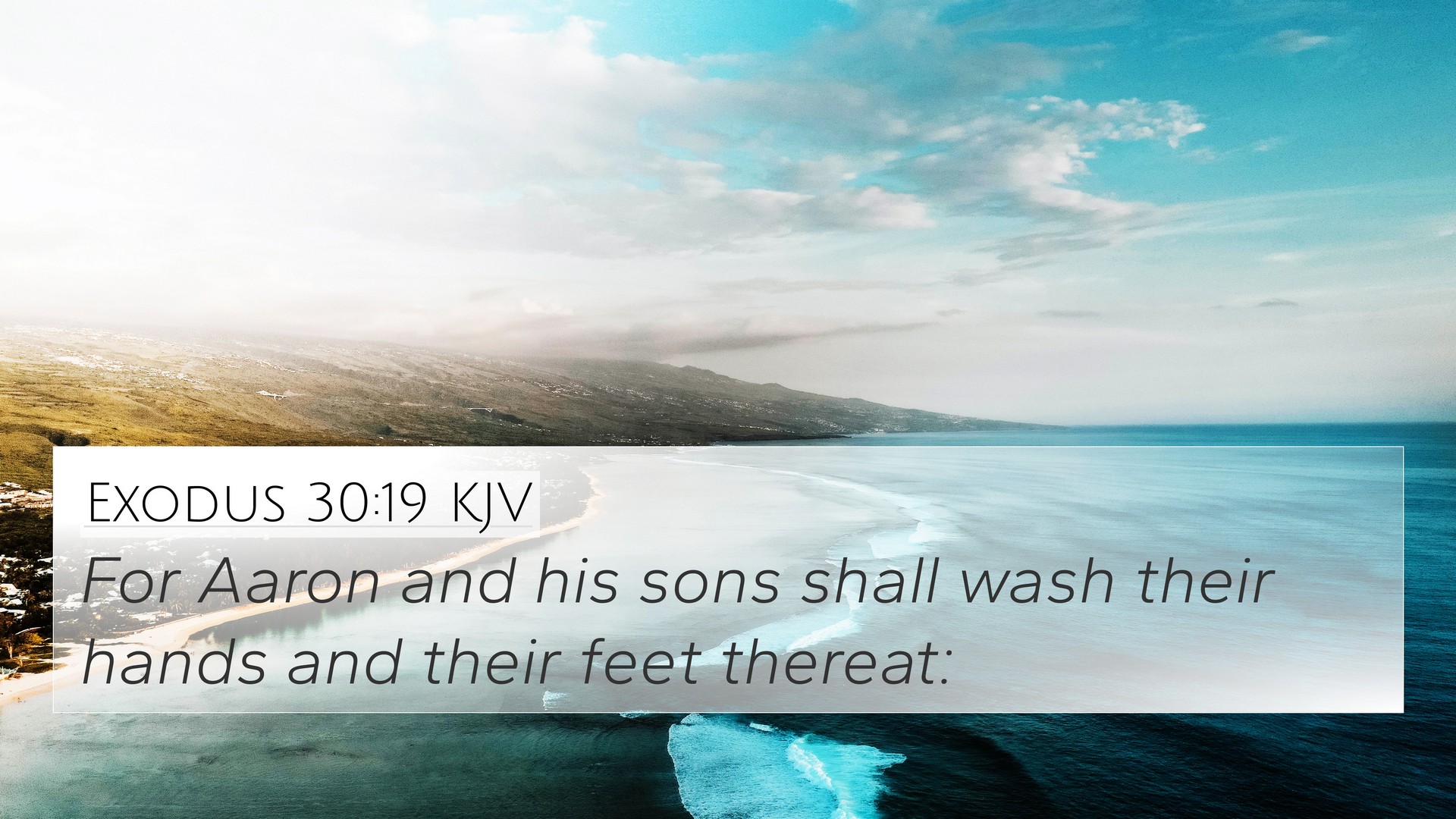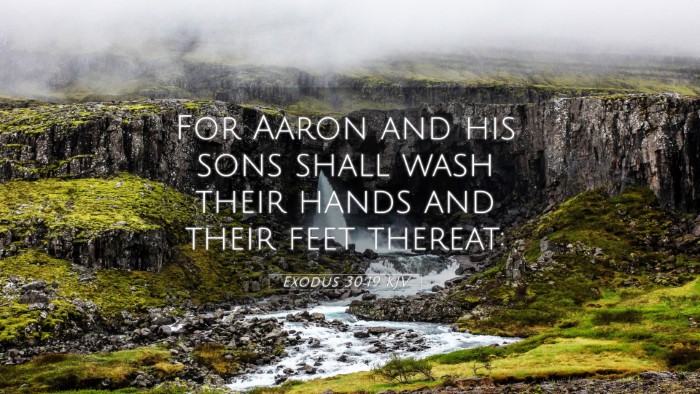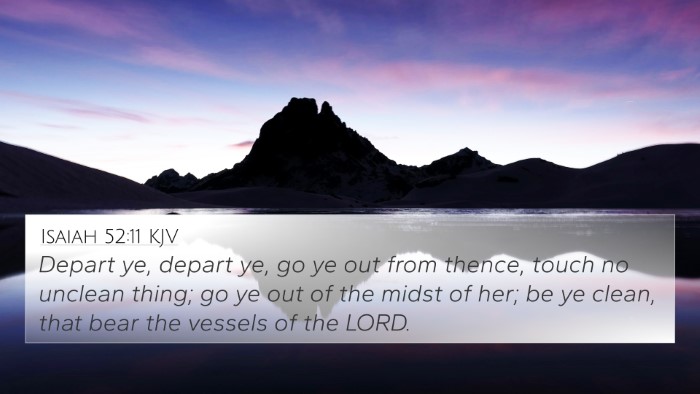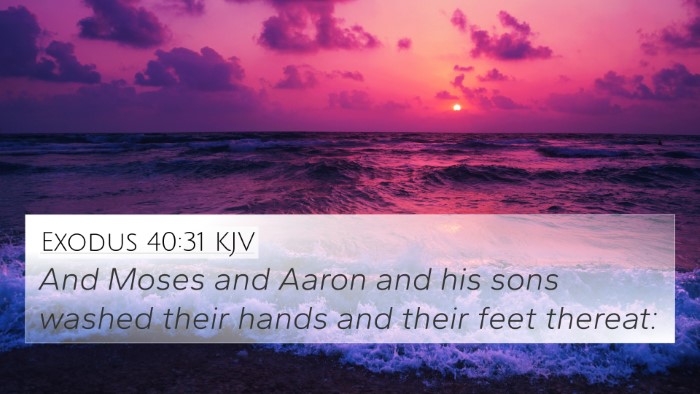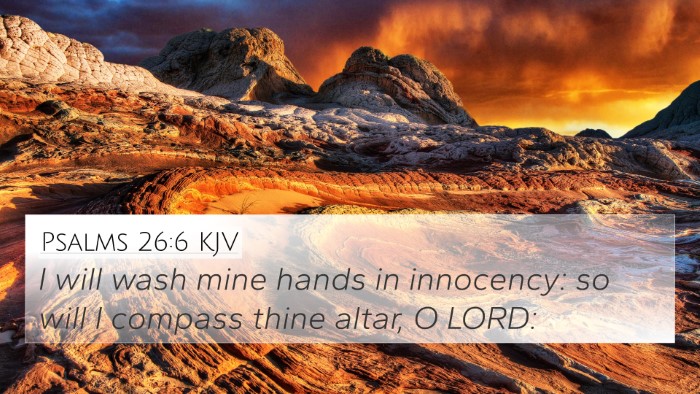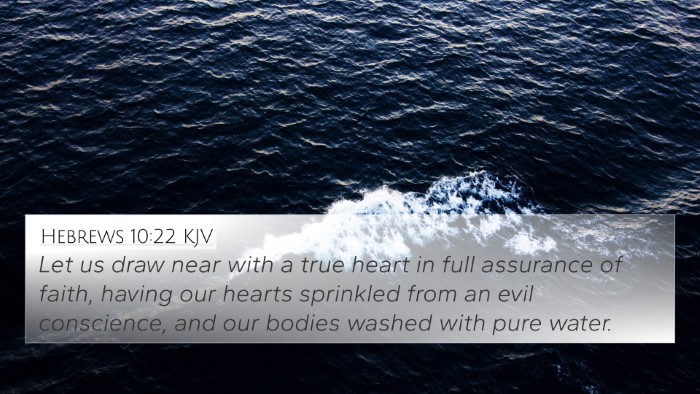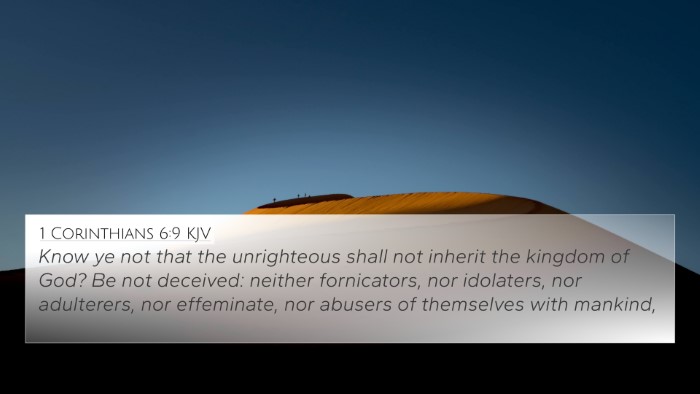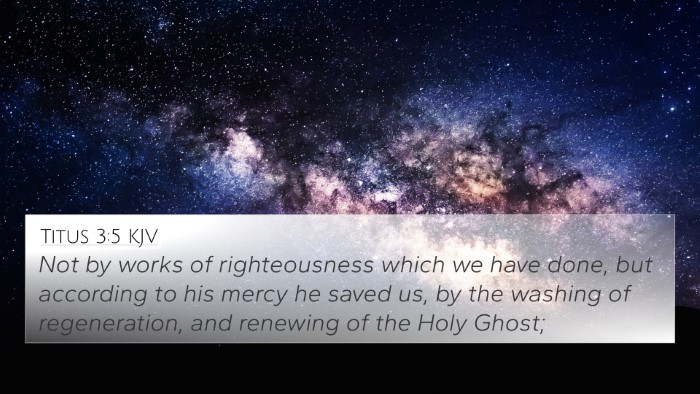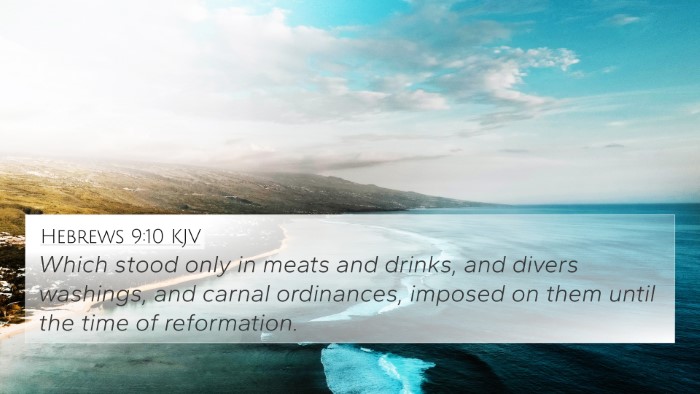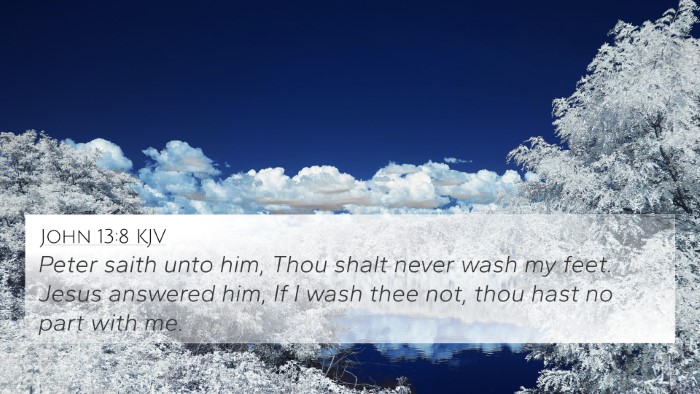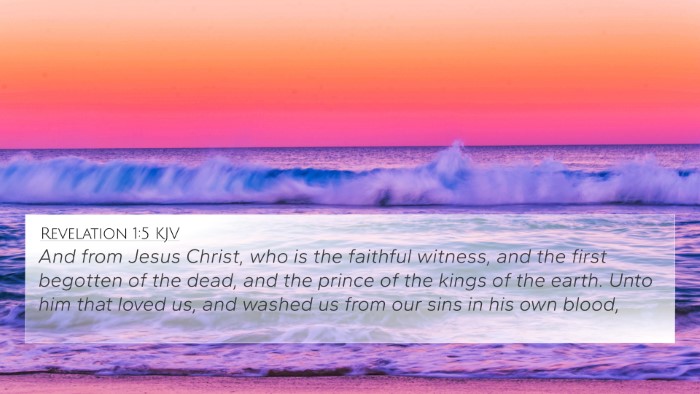Understanding Exodus 30:19
Verse: "For Aaron and his sons shall wash their hands and their feet thereat." - Exodus 30:19
This verse emphasizes the importance of ritual purification for the priests before approaching the sacred duties of the tabernacle, signifying the need for cleanliness in worship and service to God.
Key Themes and Meanings
The act of washing symbolizes purity and readiness for divine service. The priests are required to wash their hands and feet as a condition for service, reflecting the broader biblical theme of sanctification.
- Ritual Purity: The necessity of cleansing before performing sacred duties.
- Divine Holiness: God's holiness demands that His servants come before Him in a state of purity.
- Symbolism of Water: Water represents cleansing, both physically and spiritually.
- Preparedness for Service: The washing signifies being prepared to undertake responsibilities before God.
Commentary Insights
According to Matthew Henry, the focus of this instruction lays on the necessity of washing, which was critical for the priestly duties. He comments that these rituals are teachable moments on the spiritual need for cleansing before approaching God.
Albert Barnes notes that washing represents not just physical cleanliness but a deeper spiritual preparation, emphasizing that any service rendered to God must be done in a state of purity.
Adam Clarke adds insights on the significance of hands and feet; the hands symbolize actions while the feet represent the path one takes. Both must be pure when approaching the service of God.
Inter-Biblical Connections
This verse can be cross-referenced with several others in both the Old and New Testaments that highlight the themes of purification and holiness.
- Psalm 24:3-4: "Who may ascend the mountain of the LORD? Who may stand in his holy place? The one who has clean hands and a pure heart." - This emphasizes the necessity of purity in approaching God's presence.
- Matthew 5:8: "Blessed are the pure in heart, for they shall see God." - A New Testament connection that underscores the principle of purity.
- Hebrews 10:22: "Let us draw near to God with a sincere heart and with the full assurance that faith brings, having our hearts sprinkled to cleanse us from a guilty conscience and having our bodies washed with pure water." - This reinforces the theme of spiritual cleansing.
- James 4:8: "Draw near to God, and He will draw near to you. Cleanse your hands, you sinners, and purify your hearts, you double-minded!" - Calling for the inward and outward purification.
- 1 Peter 2:9: "But you are a chosen race, a royal priesthood, a holy nation, a people for His own possession..." - Relating the priesthood to believers today.
- Exodus 29:4: "And you shall bring Aaron and his sons to the entrance of the tent of meeting and wash them with water." - Reinforces the washing required for the ceremony of ordination.
- Isaiah 1:16: "Wash yourselves; make yourselves clean; remove the evil of your deeds from before my eyes; cease to do evil." - A call for moral and spiritual cleanliness.
Tools for Bible Cross-Referencing
For those seeking deeper understanding, utilizing tools for Bible cross-referencing can greatly enhance study. Here are some helpful resources:
- Bible Concordance: Guide to finding relevant verses and their connections.
- Bible Cross-Reference Guide: Offers insights into the relationships between verses.
- Bible Reference Resources: Comprehensive materials for thematic studies and cross-referencing.
- Cross-Reference Bible Study: Methods and practices for studying related scriptures effectively.
Conclusion
Exodus 30:19 serves as a powerful reminder of the necessity for purity in worship. Its connections across Scripture underline that the principle of cleansing before approaching God remains relevant today. The symbolic act of washing embodies a deeper spiritual truth, inviting all believers to examine their own lives as they draw near to the holy presence of God.
